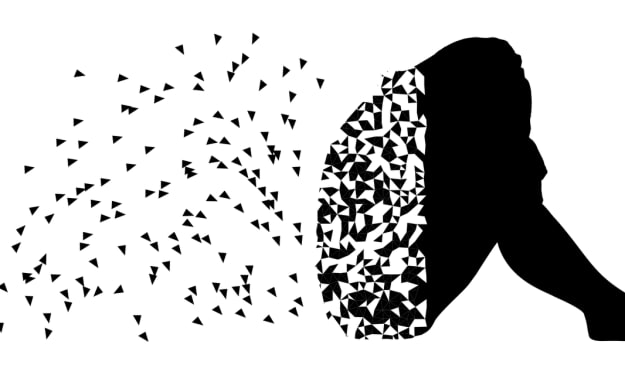What are relapse signatures in mental health? And why are they important?
Relapse signatures are the characteristic pattern of thinking and behaving that could signal the start of further episodes.

Relapse. Ah, the dreaded word for anyone struggling with an illness. Whether that is addiction, cancer or mental illnesses. This article will be about relapses in mental illnesses. I want to start by saying although relapse is almost inevitable in certain mental illnesses it is not the end of the world, I know it feels like it. A relapse is just a jail visit, not a death sentence (weird analogy but you know it makes sense).
What are relapse signatures in mental health? Relapse signatures are the characteristic pattern of thinking and behaving that could signal the start of further episodes. Simply put relapse signatures are signs that you are relapsing back into your mental illness.
Examples of relapse signatures are: Stopping medication or not taking it regularly. Feeling tense, nervous, or hostile. Social withdrawal or isolation (not going to work) Decline in personal hygiene (not taking care of yourself) and so on.
It is important to learn about your relapse signatures so that you can further help your recovery journey. It will assist in helping prevent further depressive episodes by empowering you with the knowledge you need to know when you are slipping into a decline in your mental state. After an episode of depression, the natural tendency is to try and forget and ‘move on’.
No one ever wants to have another episode but it is best to consider what you have learnt from your experience and to consider the possibility of further episodes. Some situations or behaviors—called triggers—can lead to a relapse. Knowing your triggers can help you develop strategies to deal with them and reduce the risk of relapse. Triggers are different for everyone but can include:
1. Stopping medication or not taking medication as prescribed
2. Using drugs and/or alcohol
3. Being under stress or overwhelmed
4. Conflict in relationships
5. Illness or death of a loved one
6. Other major life changes
Here is a worksheet I found online to help you learn your relapse signatures.
Below is a list of early signs that many people have experienced.
Circle the experiences you remember that occurred before your episode, and write additional words to describe your experience more specifically.
Thoughts
Racing thoughts
Senses seem sharper
Thinking you have special powers
Thinking that you can read other people’s minds
Thinking that other people can read your mind
Receiving personal messages from the TV or radio
Having difficulty making decisions
Experiencing strange sensations
Preoccupied about 1 or 2 things
Thinking you might be somebody else
Seeing visions or things others cannot see
Thinking people are talking about you
Thinking people are against you
Having more nightmare
Having difficulty concentrating
Thinking bizarre things
Thinking your thoughts are controlled
Hearing voices
Thinking that a part of you has changed shape
Feelings
Feeling helpless or useless
Feeling afraid of going crazy
Feeling sad or low
Feeling anxious and restless
Feeling increasingly religious
Feeling like you’re being watched
Feeling isolated
Feeling tired or lacking energy
Feeling confused or puzzled
Feeling forgetful or far away
Feeling in another world
Feeling strong and powerful
Feeling unable to cope with everyday tasks
Feeling like you are being punished
Feeling like you cannot trust other people
Feeling irritable
Feeling like you do not need sleep
Feeling guilty
Behaviors
Difficulty sleeping
Speech comes out jumbled filled with odd words
Talking or smiling to yourself
Acting suspiciously as if being watched
Behaving oddly for no reason
Spending time alone
Neglecting your appearance
Acting like you are somebody else
Not seeing people
Not eating
Not leaving the house
Behaving like a child
Refusing to do simple requests
Drinking more
Smoking more
Movements are slow
Unable to sit down for long
Behaving aggressively





Comments
There are no comments for this story
Be the first to respond and start the conversation.